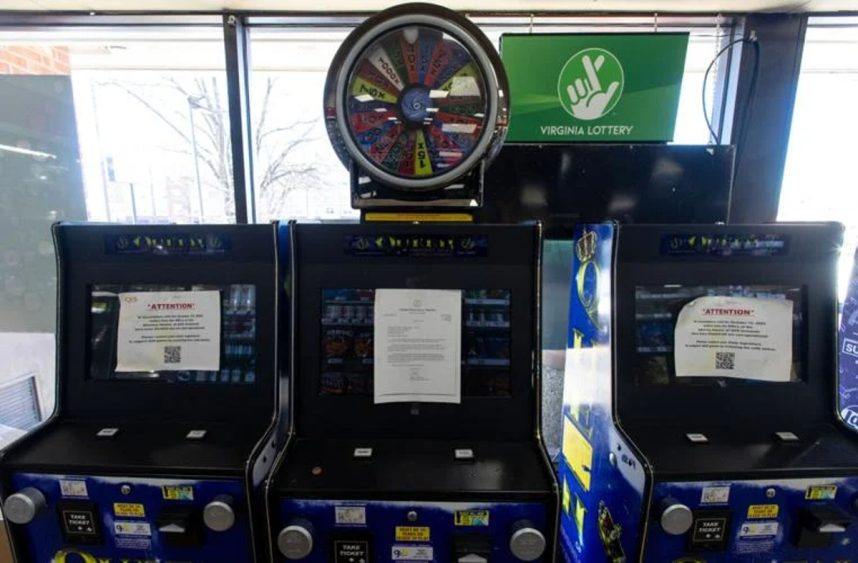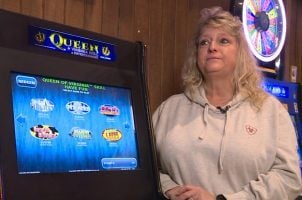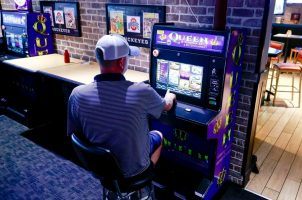Virginia Gov. Glenn Younkin Amends Skill Game Bill, Returns Legislation to Assembly
Posted on: April 10, 2024, 09:47h.
Last updated on: April 18, 2024, 08:03h.
Virginia Gov. Glenn Younkin (R) this week returned legislation that seeks to create a regulatory framework for skill games to operate in the commonwealth.

The governor rewrote much of the skill game bill. His changes centered on further restricting where the controversial slot-like machines could operate.
The bill the General Assembly sent the governor would have allowed the Queen of Virginia cabinets to be placed inside any business licensed by the Virginia Alcoholic Beverage Control Authority. Such restaurants, bars, and corner stores would be permitted up to four machines.
Truck stops holding ABC licenses could have up to 10. Lawmakers pitched the governor a 25% tax on gross revenue retained by the machines.
Younkin wants narrower rules to limit where the machines that opponents argue are nothing more than cleverly designed slot machines can operate. The governor’s rewrite includes limitations such as barring the games within 35 miles of any casino, racetrack, or historical horse racing facility.
Youngkin also wants to prohibit skill games from operating within a half-mile of any church or daycare. Youngkin additionally proposed the state receive a bigger cut of the skill gaming revenue. The governor’s rewrite included a much higher tax rate of 35%.
Virginia’s commercial casinos are taxed at a graduated rate. Slot win is taxed at 18% on the first $200 million before rising to 23% for annual revenue between $200 million and $400 million. The rate jumps to 30% on annual gross gaming revenue upward of $400 million.
Skill Gaming Industry Scolds Amendments
Proponents of reestablishing a legal framework for skill games in Virginia say the governor’s actions are crafted to essentially ban the machines and the critical revenue they’ve provided many small businesses.
It is clear the governor is more interested in protecting massive out-of-state gambling corporations than the tens of thousands of small businesses struggling to make ends meet here in his own commonwealth,” said Rich Kelly, the president of the Virginia Merchants and Amusement Coalition.
The skill gaming bill Younkin amended narrowly reached his desk. After fielding bipartisan support in the Senate with a 32-8 vote, it squeaked by the House of Delegates 51-45.
For the legislature to override Youngkin’s changes and enact the skill gaming law they initially presented, two-thirds majority support is needed. With that unlikely, the chambers can vote to accept Youngkin’s changes and enact the bill or accept some of the amendments and return the measure to the governor.
The General Assembly reconvenes on April 17 for its veto session.
Governor’s Concerns
Younkin’s office dismissed allegations that he favored big casinos over small businesses in rewriting the skill gaming statute.
The added protections address serious concerns with the regulatory structure, tax rates, the number of machines, impact on the Virginia Lottery, and broader public safety implications,” said Youngkin’s spokesperson Christian Martinez.
Youngkin’s predecessor, Ralph Northam, was a skill game proponent. Amid the COVID-19 pandemic, Northam supported temporarily legalizing the machines to help small businesses and generate funds for the state’s pandemic relief program.
The games became illegal in 2021, but a lawsuit and a judge’s injunction allowed the machines to continue operating. The Virginia Supreme Court ordered the games to be powered down last October after ruling that the injunction shouldn’t have been granted.
Related News Articles
Most Popular
Mirage Las Vegas Demolition to Start Next Week, Atrium a Goner
Where All the Mirage Relics Will Go
Most Commented
-
Bally’s Facing Five Months of Daily Demolition for Chicago Casino
— June 18, 2024 — 12 Comments
















No comments yet